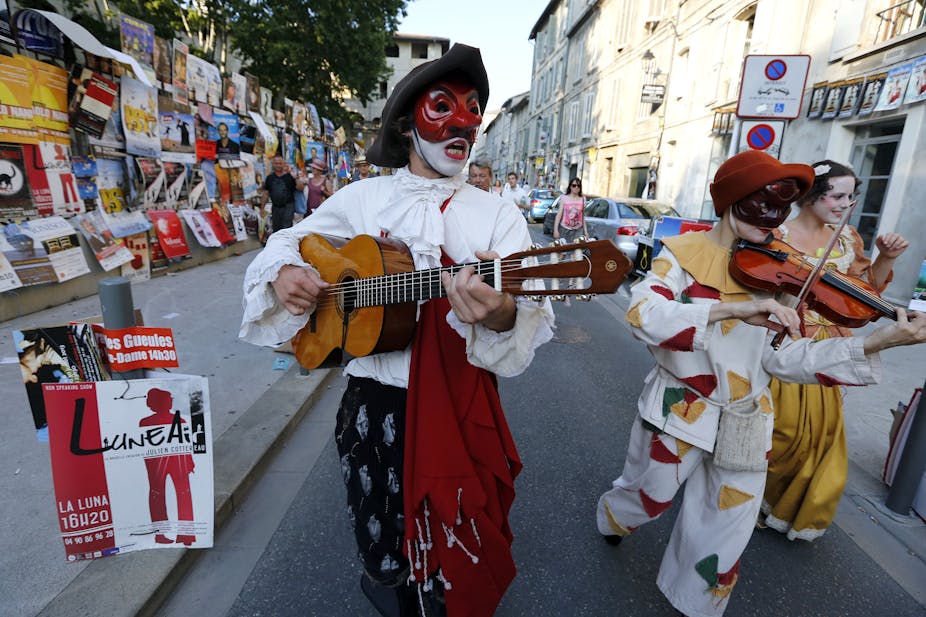A delayed start to a performance of La Traviata at the Bastille Opera may not seem like the stuff of politics, but it made headlines in France. The Saturday night show went ahead an hour late, but by the next day a government mediator (Jean-Patrick Gille) had been appointed to broker peace between aggrieved cultural sector workers and the Socialist Employment Minister, François Rebsamen.
This came at the start of a turbulent time in French politics, which (like London) has seen Parisian taxi drivers bringing the city to a standstill in a dispute about private hire cars, and rail workers paralysing the country’s transport network.
At least one major regional festival has been cancelled (the Printemps des Comédiens in Montpellier) and a whole series of cultural events and venues have been targeted by protesters. The Rio Loco music festival in Toulouse has been allowed to go ahead, but without charge to festival goers, who have had their ticket costs reimbursed.
Minister of Culture Aurélie Filipetti was forced into an awkward dialogue with a delegation of naked actors when she attended the opening day of the aptly named Furies Festival in the Champagne region. Already, there is talk of the cancellation of the Avignon Festival, and of a summer tourist season in France that will be memorable for its cancellation notices, rather than its sunshine.
So what’s going on? One could never envisage a similar threat to say, the Edinburgh Festival, or Glastonbury. In the UK, festivals and similar seasonal events are the bread and butter of performers and musicians, and they rely massively on the loyalty of returning audiences. The economy of the performance sector is fragile enough without the threat of strike action by the talent. Logic dictates that in a world where contracts are by nature temporary and short term, it would be self-defeating to add withdrawal of labour into the mix.
But things are very different in France. There, the cultural sector has both political and moral weight, and protecting the employment rights of artists remains a distinctive feature of French cultural policy. The strikes are being led by les intermittents du spectacle (intermittent cultural workers), a body that includes anyone who might perform in or service the film, media, theatre, or audio-visual industries: from actors to musicians, sound engineers to set designers. The social security safety net on which this group relies is under threat from government reform, and the strikes are a last resort to force the government back to the table.
From the British perspective, it is tempting to see this as little more than a Gallic special interest group defending its privileges when there are much more “serious” economic questions to be addressed. But the intermittents scheme is a cornerstone of French cultural policy. It is at the heart of everything that is dynamic about the French cultural landscape.
In 1936 the French government recognised that its expanding cinema industry relied heavily on experienced artisans, but that skilled workers (painters, carpenters, dressmakers) were too often deterred by the short term contracts on offer. They very reasonably preferred the security of permanent employment in more stable, less creative fields.
The benefits scheme that was devised, and which was later extended to other cultural sectors, remains one of the most unique and progressive examples of cultural policy in the world. It ensures the availability of skilled workers for artistic projects by providing a continuous basic salary while they are unemployed between fixed term contracts.
In New York, Los Angeles or London, an out of work actor might well be found waiting tables or cleaning offices; in Paris, the same actor would receive a state income, provided he or she had worked a minimum of 507 hours in the previous 10 and a half months. The fundamental principle of the regime is to recognise that cultural work is intermittent in nature, and that enforced inactivity is not quite the same as unemployment. And that the onward benefits to local, regional and national economies justify the investment.
The system is of course costly, and it is the financial sustainability of it that is under scrutiny by the government. According to the auditor general’s office, only 100,000 employees regularly benefit from the scheme; but the deficit is around one billion Euros (the interpretation of these figures has inevitably been deemed too crude by numerous commentators).
The system has also been notoriously open to abuse by employers, who have not needed to create full time permanent posts for employees protected by the social security safety net. EuroDisney, for example, employs some 1500 intermittents as “parade characters”, while a state company like Radio France employs so many intermittents that it has been suggested that it couldn’t deliver its full broadcast portfolio by relying on its permanent staff alone.
The stark reality is that in an age of widespread job insecurity, cultural workers are perhaps in no more precarious a situation than employees in many low paid sectors. So many ordinary French workers no longer understand the “special pleading” at the heart of this arrangement.
But the exception culturelle has always been cherished by the Left. Reneging on this is the equivalent of the Lib Dems backtracking on tuition fees, and it has unleashed the same levels of fury amongst disillusioned supporters. Hollande and his government stand accused of finishing the work begun by the Right in 2003, and are clearly in the process of further alienating the last bastion of voters on whom they could confidently rely. These cultural strikes are by no means the only ones to currently plague the country, but it is the dispute with the country’s cultural workers that may prove to be the one that comes back to haunt them.

